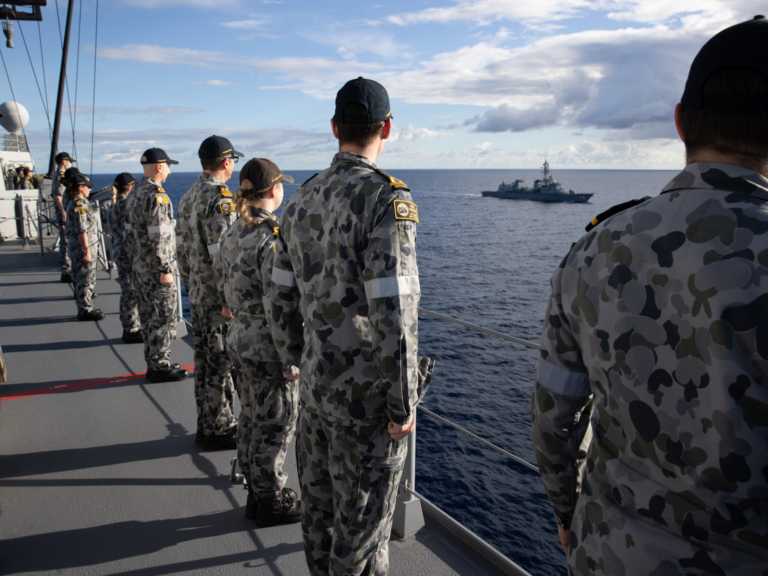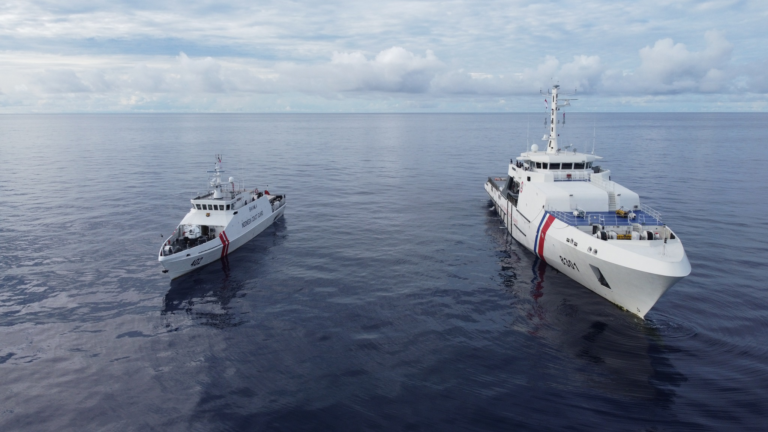
Japan’s Defense Ministry has issued its first official guidelines on the responsible use of artificial intelligence in defense research and development, marking a significant step in Tokyo’s efforts to shape global governance of AI military applications.
The guidelines reflect Japan’s human-centric approach to AI and explicitly prohibit the development of lethal autonomous weapon systems, which can engage targets without human intervention.
The guidelines, released in June 2025, come amid rising international concern over the military integration of AI, in part because of the ongoing conflicts in Ukraine and the Middle East. Authoritarian regimes in countries such as China, North Korea and Russia increasingly leverage AI for malign purposes, including information manipulation, autonomous strikes and cybercrime.
Japan’s framework emphasizes legal compliance, human oversight and transparency.
The timing of the guidelines is critical as Tokyo seeks to enhance defense operations by incorporating AI-enabled assets, Hiroyasu Harada, a defense analyst at the Tokyo-based think tank Crisis Intelligence, told FORUM. Projects include remote surveillance systems, warehouse automation and supply-demand forecasting tools.
At the heart of the guidelines is a risk management process to assess and mitigate potential threats posed by AI-integrated systems, Harada said. High-risk systems will undergo a legal and policy review to ensure compliance with international humanitarian law and Japan’s commitment to meaningful human control.
Systems then will be evaluated based on stringent technical standards, including transparency, reliability, safety and bias mitigation. “Development is not permitted if the system qualifies as a lethal autonomous weapon system,” Harada said.
The guidelines align with Japan’s national defense strategy, which envisions AI as an enabler of capabilities, allowing for modernized unit operations without ceding lethal decision-making to machines. They also “provide predictability to all business operators who wish to participate in the research and development of equipment,” Defense Minister Gen Nakatani said, according to Asian Military Review.
Japan is a proponent of global AI accountability frameworks such as the United States-led Political Declaration on Responsible Military Use of Artificial Intelligence and Autonomy, which it has signed along with dozens of other nations. Tokyo also submitted a paper to the United Nations in May 2024 reaffirming its commitment to international humanitarian law and its rejection of lethal autonomous weapon systems. The efforts align with multilateral initiatives to establish AI guidelines by organizations such as the Group of Seven leading industrialized nations and the Organisation for Economic Co-operation and Development.
In contrast, Beijing, Moscow and Pyongyang have been implicated in hostile AI-enabled operations, including Russia’s testing of AI-assisted armed drones in its war against Ukraine, underscoring the urgency of robust international norms and effective countermeasures.
With its new guidelines, Japan is positioning itself as a standard-setter in responsible AI development. By combining ethical oversight, legal compliance and technical rigor, Tokyo is seeking to protect its defense ecosystem and assert leadership in shaping global governance of defense AI.





